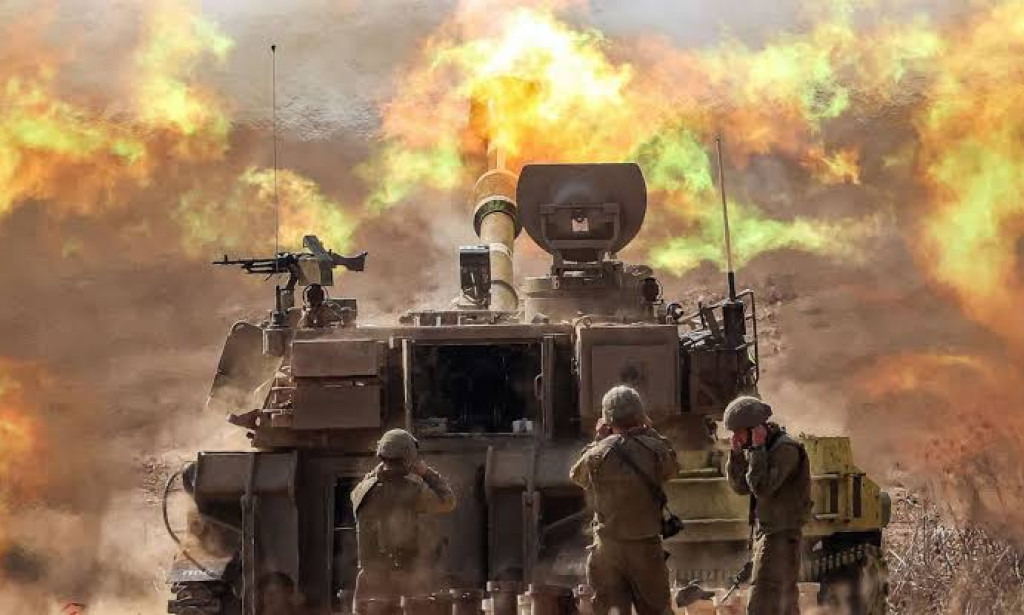The ongoing Israel-Hamas war, which erupted in early 2024, has quickly evolved into one of the most devastating conflicts in the Middle East in recent years. What began as a series of retaliatory attacks between Israel and Hamas militants in Gaza has transformed into a full-scale military confrontation, drawing the attention of the global community.
The conflict ignited on January 5, when a Hamas-led attack on southern Israel killed over 50 people and injured hundreds more. The attack, which included rocket strikes and incursions into Israeli territory, was met with heavy Israeli airstrikes, which targeted Hamas military infrastructure in Gaza. As the days passed, the intensity of the violence escalated, with both sides committing significant resources to the conflict. By early February, the number of casualties had reached tens of thousands, with entire neighborhoods in Gaza destroyed and widespread disruptions in Israel’s civilian infrastructure.
As the violence continues, there have been reports of widespread civilian casualties on both sides. In Gaza, hospitals have been overwhelmed, and critical shortages of food, water, and medical supplies have compounded the already dire humanitarian situation. Israel, too, has suffered significant losses, with rocket attacks hitting major cities such as Tel Aviv, Haifa, and Beersheba, causing widespread panic and disrupting daily life. The death toll in Israel has also mounted, with civilians living in constant fear of airstrikes and bombings.
The international community has responded in various ways. The United Nations has called for an immediate ceasefire, warning that the humanitarian crisis in Gaza is rapidly reaching catastrophic levels. A number of international leaders have condemned the violence, calling for restraint and an end to the cycle of retaliation. The United States, which has long been a staunch ally of Israel, has expressed strong support for Israel’s right to defend itself while also urging both sides to work toward a de-escalation.
Meanwhile, other nations, particularly in the Middle East and North Africa, have taken a more sympathetic stance toward the Palestinian cause. Iran has vocally supported Hamas and called for solidarity with the Palestinian people, while several Arab nations have urged Israel to halt its military operations and engage in negotiations. At the same time, the broader international community, including the European Union and the African Union, has expressed growing concern over the potential for the conflict to spread beyond Israel and Gaza, especially as Hezbollah militants in Lebanon have begun to engage Israeli forces along the northern border.
The U.S. and other Western powers have sent diplomatic envoys to the region in an attempt to broker a ceasefire, but as of now, there is little hope of an immediate end to the fighting. Efforts at establishing humanitarian corridors in Gaza to allow aid into the region have been hampered by the ongoing military actions. The blockade of Gaza, imposed by Israel following the Hamas attacks, remains a major point of contention in international discussions, with calls for the opening of border crossings to allow essential supplies to reach civilians in need.
The situation is further complicated by the geopolitical dynamics in the region. Saudi Arabia, Egypt, and Jordan have engaged in behind-the-scenes diplomatic efforts to bring about a ceasefire, though these efforts have yet to bear fruit. The presence of Iranian-backed militant groups in the region, and the deep ideological divides between Israel and Hamas, make negotiations particularly difficult.
Despite the dire situation, the international community remains divided on the path forward. Israel has expressed its determination to root out Hamas militants, viewing the group as a direct threat to its security. Hamas, meanwhile, continues to insist on its right to resist occupation, claiming that the Israeli military actions are an attempt to suppress the Palestinian struggle for self-determination.
In a statement made earlier this week, Israeli Prime Minister Benjamin Netanyahu vowed to continue military operations until Hamas has been "completely dismantled." He reiterated Israel’s commitment to defending its citizens, emphasizing that the government would not bow to international pressure. Hamas, in response, has called for a regional uprising, encouraging Palestinians in the West Bank and other areas to take up arms against Israeli forces.
As the war rages on, it seems clear that the death toll will continue to rise, and the prospects for a peaceful resolution seem increasingly remote. Both Israel and Hamas have shown little sign of backing down, and the political and diplomatic divisions surrounding the conflict appear to be deepening.
The toll on civilians, particularly in Gaza, has led to widespread condemnation from human rights organizations, which have accused both sides of committing war crimes. The ongoing fighting has also highlighted the urgent need for a lasting peace agreement that addresses the underlying issues of the Israeli-Palestinian conflict, including territorial disputes, refugee rights, and the future of Jerusalem.


You must be logged in to post a comment.